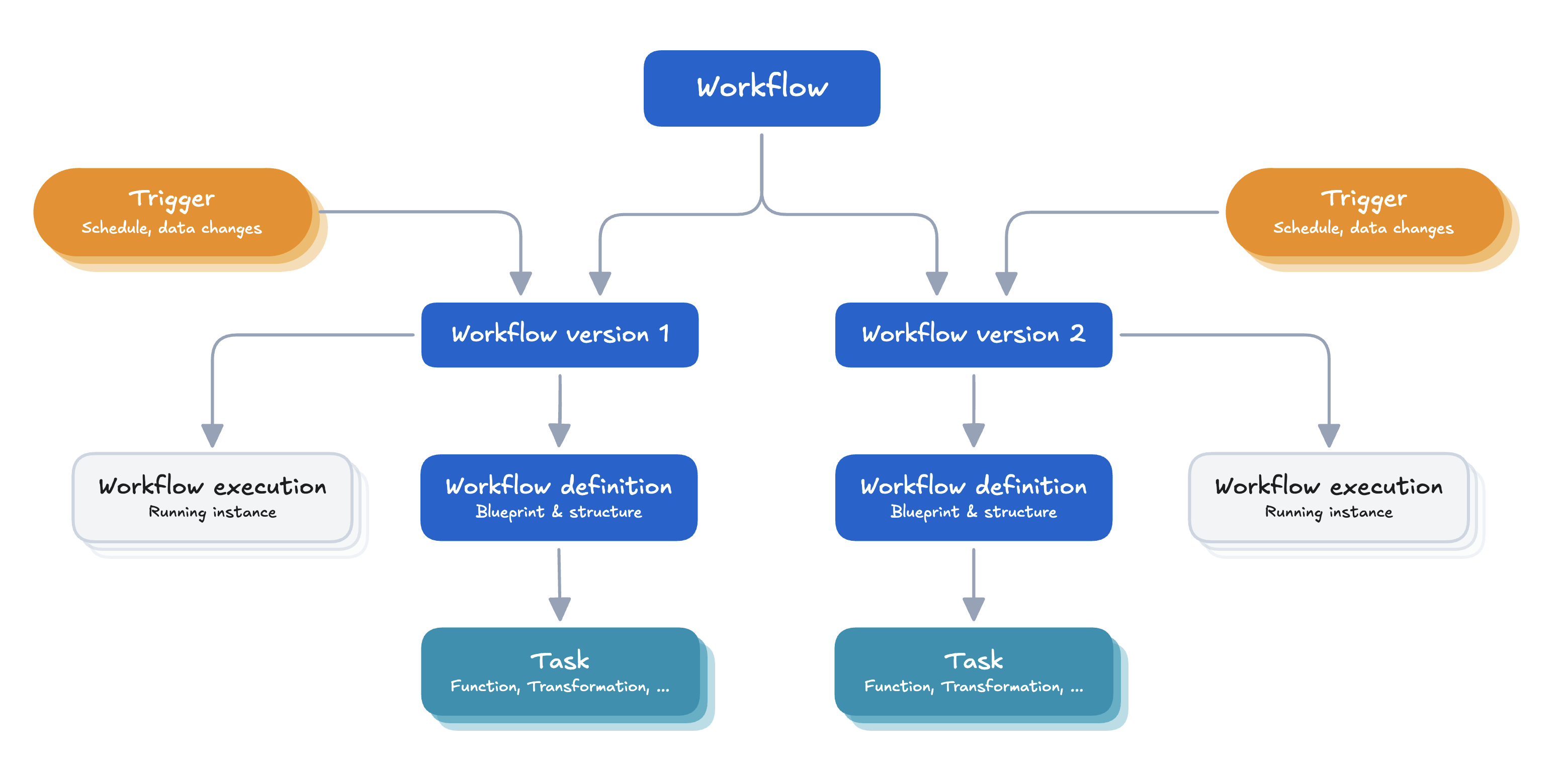
Workflows
Workflows are collections of workflow versions, each tied to a workflow definition and the workflow version executions. An external ID uniquely identifies a workflow.Workflow versions
Workflow versions are used for systematic handling of changes and iterations. A version is tied to a workflow definition and the executions of the workflow versions. Updates to the workflow definition don’t automatically require a version change. This means you can decide how to handle versioning and updates.Workflow definitions
Workflow definitions contain the details about the tasks to be run and their interdependencies. The definition outlines the structural layout and progression of the workflow, determining the sequence of tasks to be executed, and serves as a blueprint for the execution process.Tasks
Tasks are fundamental units of work within a workflow. Tasks trigger the execution of a process, like running transformations or simulations, calling functions, making API requests, or orchestrating other tasks.Workflow executions
Workflow executions document the history of runs for a workflow version. Whenever therun endpoint is called, a workflow definition is executed. A workflow execution incorporates particulars such as start time, end time, status, and relevant logs or execution details. It also contains granular task-level execution specifics. This information gives insights into individual tasks’ advancement, success, or potential failure and facilitates active monitoring, debugging, and in-depth workflow performance analysis.